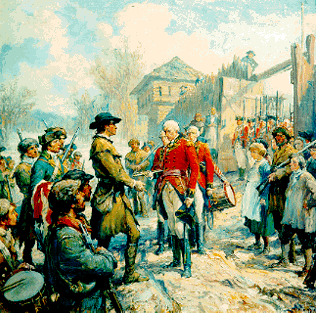1776 by David McCullough

Another great history from McCullough David McCullough's 1776 is yet another well-written history from David McCullough, the two-time winner of the Pulitzer Prize and two-time winner of the National Book Award. David McCullough Many academic historians discount McCullough's work as being too "popular" - a complaint that I think is pure bunk. McCullough's works are popular because he is a good writer, not because he is chasing popular topics. He is not skimping on these topics or slanting them a particular way. 1776 is a perfect example of this. McCullough does not paint a picture of George Washington, the perfect general. Rather, Washington is portrayed as the man who is quite a bit over his head, but still the best man for the job because he understands the larger goals of the colonies and is finally beginning to understand the tactics and strategies required for a ragtag army supplemented with local militia to take on a British army with superior tra















